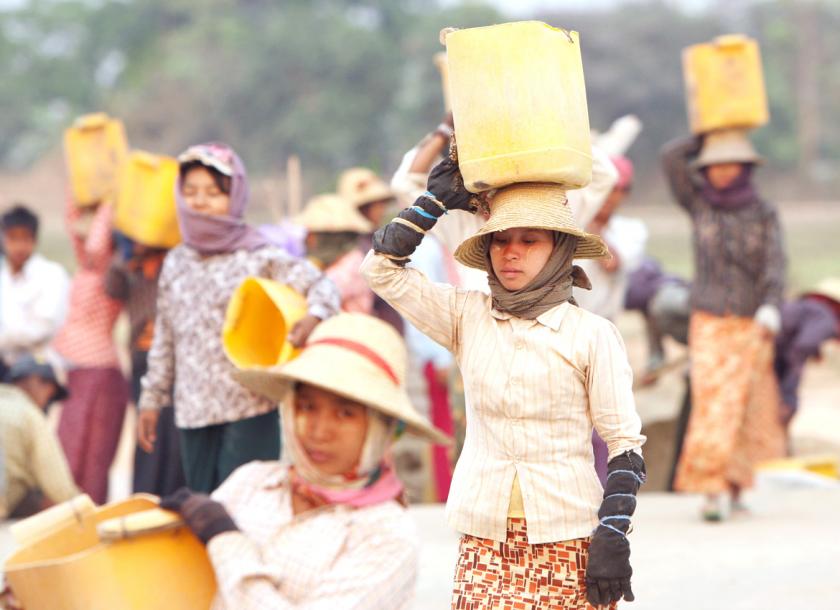Myanmar: Government reaffirms commitment to labour market reforms
Representatives of the Myanmar government, employers, workers, civil society and international partners on Wednesday gathered for the third time since 2015 in a forum to discuss the progress and challenges faced in an ongoing effort to implement labour market reforms.
Taking place in Nay Pyi Taw, the forum was held as part of the ‘Initiative to Promote Fundamental Labour Rights and Practices’ in Myanmar. Partners of the initiative include Denmark, the European Union, Japan, the US and the International Labour Organisation (ILO).
U Thein Swe, Minister of Labour, Immigration and Population reaffirmed the government’s commitment to reforming Myanmar’s labour laws and strengthening social dialogue with employers’ and workers’ organisations.
Meanwhile, EU Ambassador to Myanmar Kristian Schmidt stressed that economic growth must go hand in hand with social justice, respect for human rights, and the protection of the environment in order to be sustainable.
“As international partners in the Labour Initiative we therefore encourage constant dialogue among government, trade unions, employers, businesses and civil society to ensure everybody is on the same page when it comes to setting new standards for Myanmar’s labour market,” said Mr Schmidt. “Only if your workforce is treated fairly, they will be able and willing to contribute to an economic development that will last.”
The forum, which aims to demonstrate how good labour market governance and industrial relations can help to facilitate job creation, reduce poverty and inequality and contribute to sustainable development, comes after the ILO published its guide to Myanmar labour law last September.
Since then, the national wage panel has decided to raise the daily minimum wage to K4,800 from the current K3,600 which was set in September 2012. Confirmation of the new minimum wage is expected in two months, after the national committee reviews objections and recommendations from workers and employers.
The ILO’s other recommendations include establishing working hours of not more than eight hours per day, or 44 hours per week for adult workers in factories, shops and establishments. Periods of work within a workday must be established and arranged so that workers do not work longer than five hours at a stretch without receiving a rest of at least 30 minutes.
Meanwhile, no children 14-15 years of age may work more than four hours in any day and may not work between 6 p.m. and 6 a.m. Both restrictions apply to factories, shops and establishments. In addition, one under 14 years old may be employed, and all workers under 18 years old may only work if a certificate of fitness for work is granted by a certifying surgeon or medical practitioner and if the certificate is kept in the custody of the manager of the factory.
The ILO also suggested guidelines for medical maternity and paternity leave. For example, pregnant mothers are provided six weeks of prenatal leave and 8 weeks of postnatal leave, for a total of 14 weeks of maternity leave. Fathers are also entitled to 15 days of paternity leave.
“Both workers and employers deserve a labour market that is fair and predictable. A well-developed labour law is a key element in creating this environment. However, laws alone are not enough. Implementation of the legal framework is also essential, and in this area the private sector believes there is significant room for improvement”, said Daw Khine Khine Nwe from the Union of Myanmar Federation of Chambers of Commerce and Industry (UMFCCI).
Source: https://www.mmtimes.com/news/government-reaffirms-commitment-labour-market-reforms.html


 English
English




